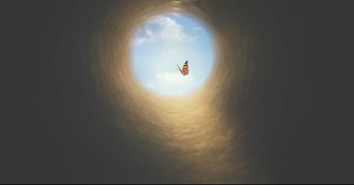Standing Up for Religious Freedom in the U.S.

The conference was fascinating, but a bit surreal. The American Religious Freedom Program put together a riveting day to address — of all things — “Rising Threats to Religious Freedom” here in the United States.
You may be familiar with the Department of Health and Human Services healthcare mandate that stipulates that all but a tiny, tiny minority of religious organizations will have to provide their employees health insurance benefits that include contraception, sterilization, and abortion-inducing drugs. Catholics and other Christians believe these to be immoral and forcing Americans to participate is an unprecedented government abridgement of religious freedom.
As Dr. Richard Land, president of the Ethics & Religious Liberty Commission of the Southern Baptist Convention, reminded the group, this is about conscience, not contraceptives; the Constitution, not Catholics; religious freedom, not reproductive freedom. The government’s actions affect all of us.
Later in the day, Dr. Donald Landry of New York Presbyterian Hospital and the Department of Medicine at Columbia University told the conference that decades of efforts aimed at marginalizing anyone with religious or moral values have produced an “ideological purification” in healthcare as a whole. And it’s an ideology so extreme that some healthcare leaders reject all conscience protection for doctors, nurses, pharmacists, and others. Sadly some of the most radical elements, he said, are among OB/GYNs whose profession of assisting new human life into the world has been desecrated by an aggressive pro-abortion mindset that would just as well kill that life in the womb — or even, in some cases, after birth.
There was also discussion about teachers, pharmacists, photographers, and small business people, but in the week before Memorial Day the most egregious and insulting attacks on religious freedom had to do with the military and veterans.
The repeal of “Don’t Ask, Don’t Tell” put chaplains and troops who believe in biblical sexuality in the crosshairs. Senior brass at the Pentagon are driving sexual “inclusiveness” even if it tramples the consciences of chaplains and contradicts the doctrines and morals of their ecclesial bodies. It is not clear how safe religious freedom will remain for those on active duty.
Veterans and their widows recently had to fight administrators at some Veterans cemeteries who had banned of the words “God” and “God bless you” from burial services until threats of lawsuits forced them to relent. And even after the Supreme Court declared the Mojave Cross constitutional, secular groups have brought suit against another veterans memorial, at Mount Soledad for also having — you guessed it — a big cross.
Those who fought to defend our freedom shouldn’t have to fight to defend their own freedom. But they have no choice.
And you and I have no choice either.
We are facing a view of religion that was well expressed by University of Notre Dame law professor Gerald Bradley. First, any dissent from the lifestyle liberal positions on things like same-sex “marriage,” abortion, cohabitation, and contraception is identified as “religious” meaning non-rational and therefore a prejudice that should have no voice in the public debate. Second, the value of religious institutions to the community is assumed to be minimal and ultimately unnecessary. Religion, he said, is viewed as merely “a private delight” with an emphasis on “private.” The efficient delivery of public values — hospitals, clinics, education, aid to the poor — should be purely secular. If religious people want to deliver such services, that’s fine, as long as they make their religion as invisible as possible.
It’s ugly out there, but not hopeless. The final speaker, Kelly Shackelford of Liberty Institute, closed by saying that whether or not we maintain our religious freedom in America depends on whether enough people are willing to stand and defend their own and their neighbors’ religious freedom. And that’s a challenge for us all.
Publication date: May 30, 2012
Originally published June 06, 2012.





